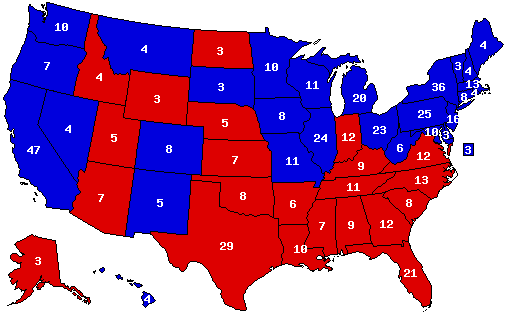shiftygiant
Gone Fishin'
This is the twain that divides us; but Laud's twitter feed was what convinced me over some of the more 'conventional' options.Lovely as ever; though I'd have gone with Arron Banks personally.
This is the twain that divides us; but Laud's twitter feed was what convinced me over some of the more 'conventional' options.Lovely as ever; though I'd have gone with Arron Banks personally.
What's the most in AH.com history?okay guys but seriously normally i'm as much a whore for likes as you're ever going to see but this comment doesn't deserve thirteen of them
Lose a Battle to Win the War.
DevestationWarning Signs

One of the most outrageous came from businessman celebrity Donald Trump, who called the President "The worst traitor this country has ever seen" and questioned whether McCain should be considered a war hero because he was captured (for these remarks, Trump was vilified in the right-wing press, with even McCain-critical Breitbart spreading conspiracy theories that Trump was secretly funding Islamist terrorism).
And they say Gonzo is the dystopian one.Also we get The Daily Show with John Oliver.
I doubt he'd go for the Liberal nomination, they're pretty well kaput by 2010.CANDIDACY TO RESTORE SANITY AND/OR FEAR
When David Paterson nominated Kirsten Gillibrand to fill Hillary Clinton's Senate seat, Congresswoman Carolyn McCarthy said she was going to run against her in the primaries for the 2010 Democratic nomination. McCarthy is well known for being anti-gun and was critical of Gillibrand for having the support of the NRA. In OTL, she decided not to run, but what if she did. Although Gillibrand ends up winning the nomination, McCarthy succeeds in portraying her as the "anti gun control candidate". Gillibrand ends up saying something stupid like "guns aren't that dangerous".
On the May 13, 2010 episode of The Daily Show, Jon Stewart announces his candidacy in the New York Senate special election, running from the Liberal Party of New York. Stewart also announced that he would be stepping down from hosting the show indefinitely and would only return if he lost the race. In the interim, John Oliver began hosting the show starting June 1.
Stewart ran a campaign on being more left than Gillibrand and even received the endorsement of McCarthy. In September, Stewart appeared as a guest on The Daily Show to announce a campaign rally. This rally was based on an idea his team had when he was still hosting the show. It later combined with Stephen Colbert's March to Keep Fear Alive. Although the entire rally was a comedy routine, Stewart and Colbert ended it by making an impassioned plea to convince people to vote for Stewart. Stewart received the endorsements of many high profile celebrities, including fellow comedians, actors, and the other late night hosts.
All the way to election day, the news treated Stewart's campaign as a joke and giant publicity stunt. Stewart even expected to lose and began making preparations to re-assume hosting duties the day after the election. However, Stewart ended up winning a narrow plurality, less than 7,000 votes more than Gillibrand. His victory was treated as the biggest upset of the year. His victory was credited to massive turnout among young voters.
In the 112th Congress, Stewart caucused with the Democrats. He ran as a Democrat in the 2012 regular election. Throughout his six years in the Senate, Stewart was a strong advocate for gun control, social progress and fighting climate change. He also fought against renewing parts of the Patriot Act when they came up and was instrumental in the renewal of the 9/11 First Responders ACT. Stewart gained a reputation for disparaging both Republicans and his fellow Democrats at times.
----
Stewart would never have run, and certainly not against Gillibrand, but I figured why not. Also we get The Daily Show with John Oliver.
Yeah, there was no way I could justify a margin that big being reversed, since unlike Coburn or DeMint he didn't run against some complete nobody who didn't campaign in OTL who I could replace with someone more competent.John Hoeven winning makes a lot of sense, his approval is sky high and always has been. Of course, Sanford-gate probably narrowed the margins.
Everyone loves John Hoeven. So friendly with the petrol companiesYeah, there was no way I could justify a margin that big being reversed, since unlike Coburn or DeMint he didn't run against some complete nobody who didn't campaign in OTL who I could replace with someone more competent.
Hoover is breakdancing in his grave.An Unapologetic Dem-Wank

Gov. Jerry Brown (D-CA)/Sen. Joe Biden (D-DE) - 334 EV, 52.69%
VP George H. W. Bush (R-TX)/Dan Quayle (R-IN) - 204 EV, 46.06%
Rep. Ron Paul (L-TX)/State Rep. Andre Marrou (L-AK) - 0 EV, 0.64%


[Reminder that Oliver was actually fairly good when he did host the Daily Show in 2013]And they say Gonzo is the dystopian one.
I mean, if you thought he was good, all the more power to you.[Reminder that Oliver was actually fairly good when he did host the Daily Show in 2013]